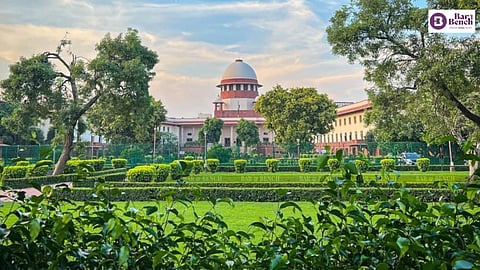
- Latest Legal News
- News
- Dealstreet
- Viewpoint
- Columns
- Interviews
- Law School
- Legal Jobs
- हिंदी
- ಕನ್ನಡ

The Supreme Court on Thursday upheld a Gauhati High Court decision to set aside a rule enabling Deputy Commissioners (DCs) in Assam to initiate performance and appraisal reports of Indian Police Service officers in the State who are posted as Superintendents of Police (SPs) [State of Assam and ors vs Binod Kumar and ors].